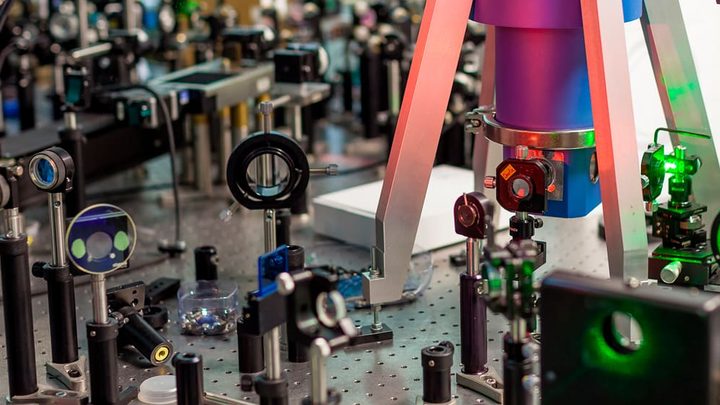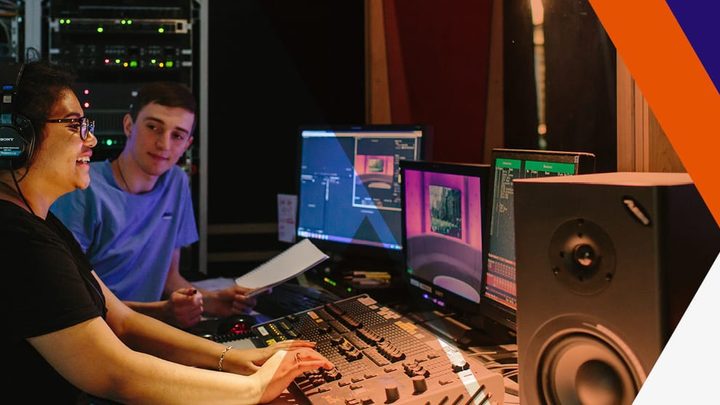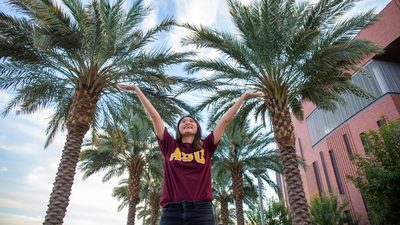For part IV of our blog series on how our partner universities are contributing to the global coronavirus response, we’ll be focusing on the University of Brighton, the University of Westminster and UWE Bristol in the UK.
Read part I, part II and part III of this series.
University of Brighton
When the coronavirus (COVID-19) pandemic took hold in the UK in 2020, staff at the University of Brighton volunteered their most precious resource: their expertise.
Hazel Horobin, a Senior Lecturer in Physiotherapy, hadn’t worked in a clinical setting for more than 20 years, but when the coronavirus began to spread in the UK, she knew she had to help out. Hazel was seconded from her job at the University to the Frailty Unit at Eastbourne Hospital. She described it as: “the University reaching out and doing its part in helping”.
Similarly, Lesley White temporarily left her position at the University as a Senior Lecturer in Clinical Practice to return to her former job as a nurse. After five years’ absence, Lesley was back at the Intensive Care department of Royal Sussex County Hospital — only this time she was working with some of her former students!
However, Brighton’s lecturers weren’t the only people to help out. Before the pandemic, many Social Work students at the University were carrying out placements in local care homes and hospitals — hot spots for transmission of the coronavirus.
While they were offered the option to end their placements early, the majority of students chose to continue supporting their vulnerable clients, despite the increased risk.
Cath Holstrom, the University of Brighton’s Head of Social Work, said: “Our students are fantastic ambassadors for the essential social work profession. Our students have contributed enormously to the work of social work teams across the local area and we are very proud of them”.
University of Westminster
When the pandemic hit, Tumpa Fellows, Senior Lecturer at the University of Westminster‘s School of Architecture and Cities, was forced to suspend her fieldwork in the village of Rajapur, Bangladesh.
However, Tumpa still wanted to help the people of these remote communities, so she decided to carry out some virtual community engagement instead. Tumpa organised online workshops to help educate people on the pandemic, explaining the importance of hand-washing and mask-wearing, and how to access medical help.
To get the community more involved, there were also competitions to design masks and social distancing devices!
Westminster’s students have also been directly involved in the University’s coronavirus response. Together, 40 students managed to raise over £100,000 for the University’s COVID-19 Response Fund as part of an annual telephone campaign. The students contacted 1,000 university alumni, who gave generously to their former university.
The fund will be used to support students who faced financial hardship due to the pandemic, helping them with their living costs such as rent, food and medical care.
UWE Bristol
UWE Bristol has played a big role in England’s coronavirus response, going so far as to turn one of its buildings into a hospital and vaccination centre!
Early in the pandemic, the National Health Service (NHS) set up a number of emergency temporary hospitals known as ‘Nightingale hospitals’. UWE was quick to respond to the need for space for these hospitals, and offered up its Exhibition and Conference Centre (ECC) on Frenchay Campus as a venue.
In just three weeks, the centre was turned into a fully functional, 300-bed hospital. However, that was not the end of the modifications to the ECC.
The UK guidance around vaccines initially advised that adults should receive their second dose of the vaccine 12 weeks after the first. However, with new variants on the rise around the world, the guidance has changed and people can now get their second dose after only 8 weeks. This means large-scale vaccination centres are vital to meet the demand for earlier jabs.
UWE was able to utilise the medical facilities already installed in the ECC to create a vaccination centre capable of administering up to 1,000 doses a day. The University’s Vice-Chancellor, Professor Steve West said:
“We are proud to be able to help the regional and national effort to get people vaccinated… we place great value on being part of the community and making a difference.”
Share this quote
Find out more
These are just some examples of how our partner universities are leading the way in the worldwide coronavirus response. Check out the other instalments of how universities are fighting COVID-19 below.






